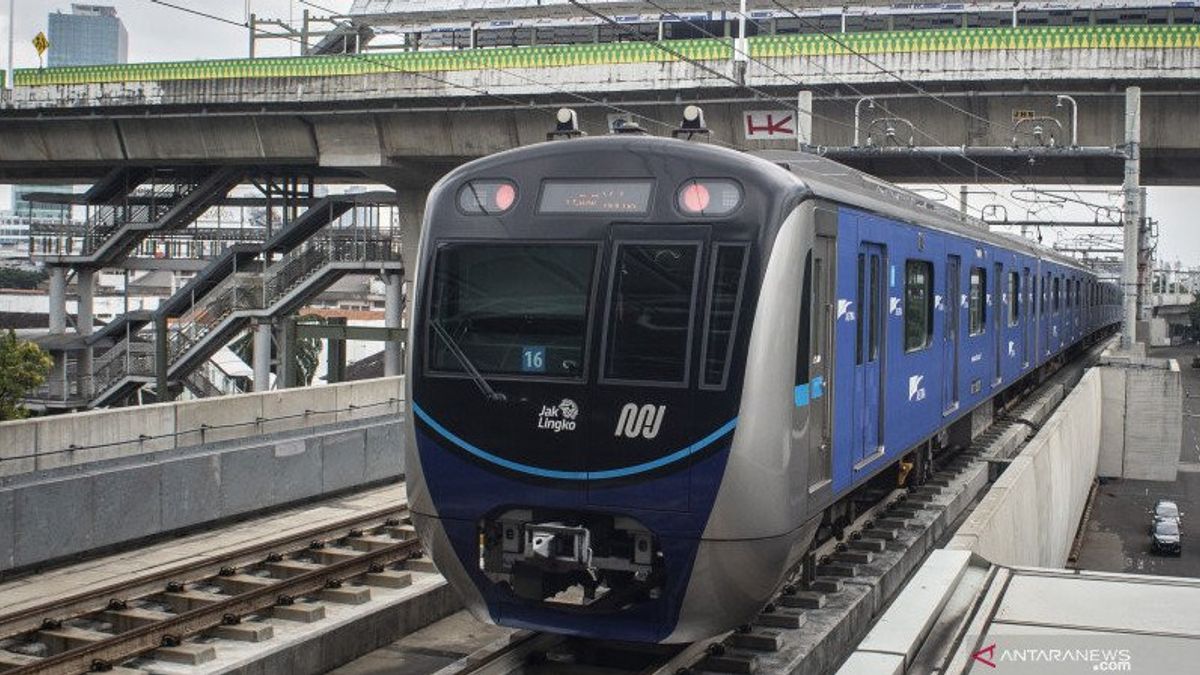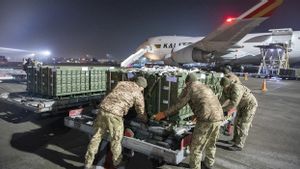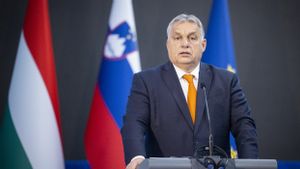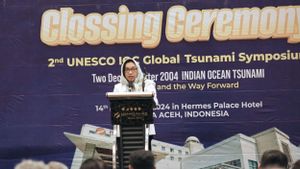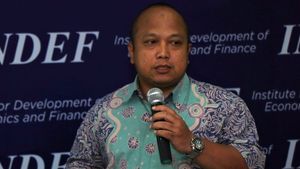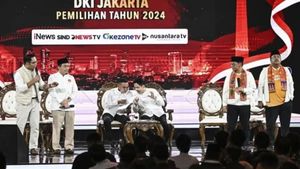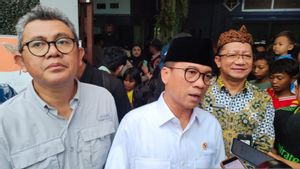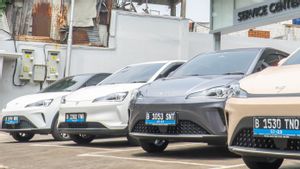JAKARTA - The DKI Jakarta Provincial Government plans to integrate travel fares using public transportation, namely Transjakarta, MRT Jakarta, and LRT Jakarta with a nominal value of Rp. 10,000.
In his presentation during a meeting with Commission B of the DKI Jakarta DPRD, Head of the DKI Jakarta Transportation Agency, Syafrin Liputo, said that the proposed one-time transportation tariff even though changing modes was based on the recommendation of the Jakarta City Transportation Council (DTKJ) to the Governor of DKI Jakarta Anies Baswedan.
"The tariff for integration of the three modes in Jakarta, namely TransJakarta, LRT and MRT, is proposed at Rp. 10,000. Meanwhile, for each mode at the time the bundling tariff is in effect, it will remain the same. only," said Syafrin, Wednesday, March 16.
It is known that the tariff for one mode on Transjakarta includes Microtrans for IDR 3,500 flat, MRT Jakarta for IDR 14 thousand, and LRT Jakarta for IDR 5,000 flat. The total tariff for the three modes before being integrated reached Rp22,500.
The calculation is that if passengers use three modes one way with integrated fares, it will save Rp. 12,500.
Then, Syafrin said there would be an increase in the number of people using transportation capital, especially on the Jakarta LRT and Jakarta MRT. Along with this, the use of automatic private vehicles is decreasing.
"There will be a high increase in passengers because the integrated tariff scheme will encourage people to use multimodal. The number of daily LRT and MRT passengers will increase by around 16 percent," said Syafrin.
Observing this, the DPRD questioned the value of benefits for the DKI Provincial Government and the people of Jakarta if public transportation fares were integrated. Considering that currently the amount of transportation fares for the three modes is still supported by subsidies from the DKI Regional Budget.
Based on the calculations of the DKI Provincial Government, in 2021 the profit of Transjakarta, MRT, and LRT on ticket revenues is Rp. 292 billion. If the integration tariff has been applied, the income of the three modes will be minus IDR 4 billion.
When the income of transportation managers decreases, it will automatically affect the burden of subsidies or public service obligations (PSO) given by the DKI Provincial Government.
What is also a problem, said Member of Commission B of the DKI DPRD, Manuara Siahaan, is whether the DKI Provincial Government can ensure that the beneficiaries of transportation integration are dominated by Jakarta residents.
"Who is the largest beneficiary of this PSO? The data presented shows that in fact the largest beneficiary is people who live outside DKI Jakarta. This means, if later the PSO is funded by the APBD, because the largest flow will be from Jabodetabek," said Manuara.
Agree, Member of Commission B Gilbert Simanjuntak admits that he is worried if the audience for this integrated transportation mode is actually bigger than residents outside Jakarta.
Meanwhile, if the tariff is integrated, the DKI Provincial Government will definitely budget for a larger subsidy than before the transportation modes were integrated.
"How many passengers are estimated to come from outside DKI Jakarta that we will subsidize? This is not a small number, Rp. 3 trillion, I can build how many flats in Jakarta," Gilbert asked.
Until the meeting ended, the DPRD and the DKI Provincial Government had not agreed on whether the transportation integration tariff was set at Rp.
The proposed Jakarta transportation integration tariff failed to be decided at the Commission B meeting of the DKI Jakarta DPRD on Wednesday because the DKI Jakarta Regional Secretary and several BUMD DKI Jakarta Transportation Directors were not present.
The English, Chinese, Japanese, Arabic, and French versions are automatically generated by the AI. So there may still be inaccuracies in translating, please always see Indonesian as our main language. (system supported by DigitalSiber.id)
